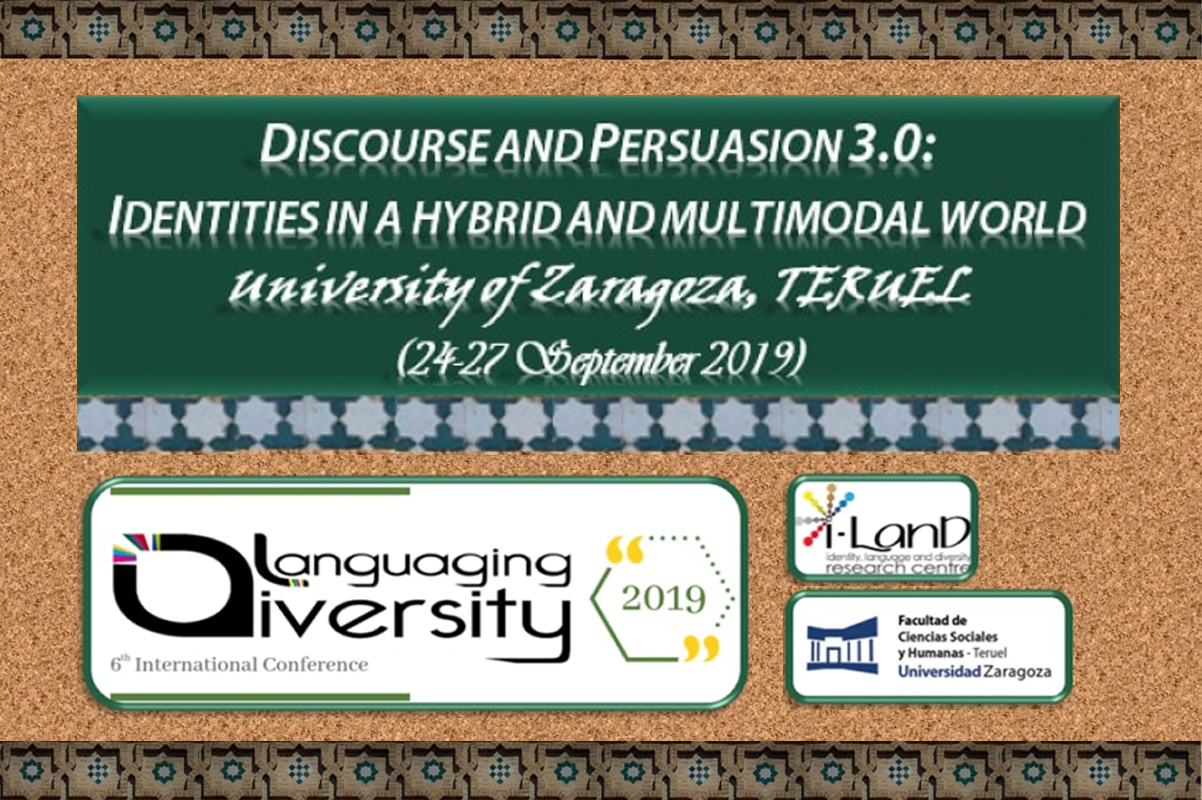 Following the five successful events hosted by the Universities of Naples (2013), Catania (2014), Macerata (2016), Cagliari (2017) and Antwerp (2018), the I-Land Interuniversity Research Centre brings the sixth edition of its Languaging Diversity annual conference (LD6) to the University of Zaragoza, Spain, at the Campus of Teruel. The beautiful historic city of Teruel, a UNESCO world heritage site, boasts mesmerising examples of the Mudejar architectural style, and is home to the tragic and deeply moving story of Diego de Marcilla and Isabel de Segura, the so-called ‘lovers of Teruel’.
Following the five successful events hosted by the Universities of Naples (2013), Catania (2014), Macerata (2016), Cagliari (2017) and Antwerp (2018), the I-Land Interuniversity Research Centre brings the sixth edition of its Languaging Diversity annual conference (LD6) to the University of Zaragoza, Spain, at the Campus of Teruel. The beautiful historic city of Teruel, a UNESCO world heritage site, boasts mesmerising examples of the Mudejar architectural style, and is home to the tragic and deeply moving story of Diego de Marcilla and Isabel de Segura, the so-called ‘lovers of Teruel’.
LD6 builds on the themes of the previous editions (i.e. diversity, alterity, power, social class and globalisation) to propose a research strand linked to persuasion, the pragmatic or communicative intention whereby identity is enacted, power communicated and societal patterns reproduced.
The three Aristotelian modes of persuasion (i.e. ethos, pathos and logos) have traditionally been associated with such typically persuasive genres as political speeches, editorials or opinion articles, which are claimed to shape power relations where those at the helm were a selected few (politicians, journalists, lawyers, renowned scholars, etc.). The age of social media and the Internet of Things, however, forces academics to study this phenomenon from a new perspective and try to answer questions such as the following: Who holds the power to persuade nowadays? How do certain people become influential? What channels are most effective when trying to persuade others? What are the underlying motives behind persuasion nowadays? Which persuasive strategies work best in each community of practice? Which of our various identities are most likely to be moulded and/or reinforced as a result of persuasion? All these questions arise in a world order of increasing hybridization, at a time when there are fewer boundaries between the written text and the (audio)visual, between seemingly factual genres and those where opinion is markedly present; in short, between truth and fabrication. In this setting, our active participation as global citizens in the consumption, production and transmission of information, or ‘prosumption’ (Weeks et al. 2017), has also blurred the boundaries between persuader and persuadee.
In LD6, we set out to cast light on the intricacies of persuasive discourse and the manifold reactions it may engender in today’s globalised and multicultural societies. At the core of this endeavour is a genuine willingness and commitment to tease out the nature of persuasion in diverse contexts (e.g. art, education, business, sport, companies, the private sphere, etc.), through diverse channels (e.g. face-to-face interaction, on-line communication, published articles, performances, etc.), and as more or less relevant to diverse identities (e.g. linguistic, political, gendered, etc.). As in previous LD editions, interdisciplinarity will also be key for us. This time, in LD6, the collaboration and cross-fertilisation of knowledge will show in an organising and scientific team encompassing Philology, Psychology, Education, Business and Fine Arts, five areas representing the extremely enriching interdisciplinary make-up of the Faculty of Social and Human Sciences in Teruel.
Conference website: http://langdiv2019.unizar.es/
Conference e-mail: ld2019@unizar.es
EasyChair submission link: https://easychair.org/conferences/?conf=ld2019
Follow us on:
Twitter: @LangDiv2019, #LangDiv2019
Facebook: https://goo.gl/2AniEo
Download document: Call for Papers_LD6_Teruel_DRAFT_ENGLISH
